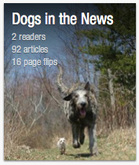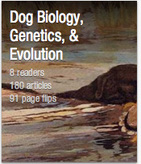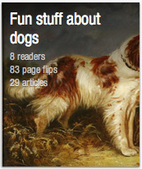The gene for dwarfism in Miniature Poodles has a singular ancestral origin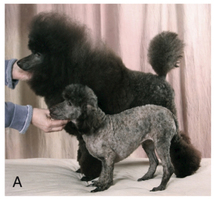 Miniature Poodles can suffer from a dwarfism that affects both the limb bones and the spinal cord and ribs. The gene associated with this defect is apparently a single ancestral mutation that is inherited as an autosomal recessive and now occurs in the US population with a carrier frequency of about 10%. A DNA test has been developed that will enable breeders to avoid producing affected dogs. (PLoS ONE 7(12): e51917) Dogs and humans fighting cancer togetherChemotherapy that works for humans frequently also works for dogs because their cancers are nearly identical. Now, dogs are helping oncologists find new treatments for humans by participating in clinical trials of new drugs. For dogs and people, it's a win-win. (more...) | A dog's eye view of morphological diversity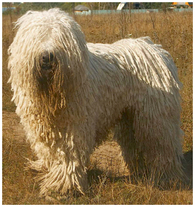 The history of genetic discovery offers a lesson in inspired choices. Mendel pried the principles of inheritance from the seeds, pods, and flowers of pea plants. Morgan linked trait inheritance to specific chromosomes after the unexpected appearance of a white-eyed fly among the red-eyed multitudes. McClintock showed that genes could change position on a chromosome by charting the idiosyncrasies of every leaf and kernal of her beloved maize plants. And now Elaine Ostrander, who admits a sense of "awe" and "marvel" at her pet organism, the domestic dog, has found that some complex traits may not have such a complex genetic basis after all. Working with longtime collaborators Carlos Bustamante and Robert Wayne, Ostrander and her colleagues report that complex traits like body size and coat color may fall under the control of surprisingly few genes. (PloS Biol 8(8): e1000452) |
 RSS Feed
RSS Feed
